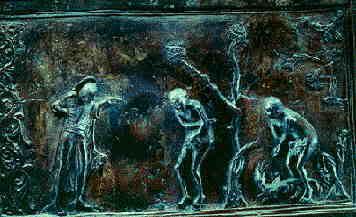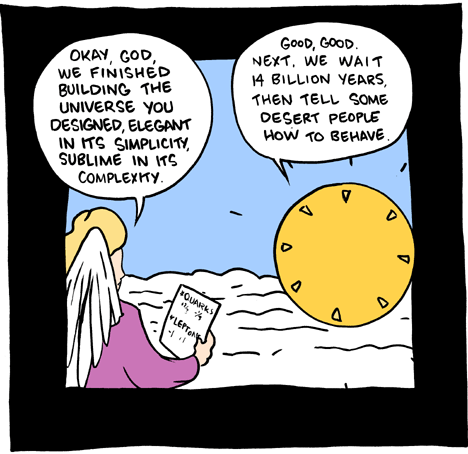The Defense of Marriage Act, passed by the US Congress in 1996, defines marriage as being solely between “a man and a woman”. Judge Joseph Tauro of the US District Court of Massachusetts just issued a ruling striking down the DOMA as unconstitutional. In so doing, he apparently stated that
DOMA marks the first time that the federal government has ever attempted to legislatively mandate a uniform federal definition of marriage – or any other core concept of domestic relations, for that matter.
Charles Lane, over at the Post Partisan blog of the Washington Post, responds by saying, in effect, “Uh, no.”
During the 1856 presidential campaign, the Republican Party platform had accused the Democrats of countenancing “those twin relics of barbarism–polygamy and slavery” and declared it the “duty of Congress to prohibit” both evils in the territories. Buchanan’s expedition was intended to prove the Republicans wrong. It succeeded only in provoking a few inconsequential clashes between armed Mormons and U.S. soldiers.
Congress subsequently adopted three increasingly harsh criminal bans on bigamy and polygamy in the territories: in 1862, 1882 and 1887. The Supreme Court upheld these laws repeatedly against Mormon challenges alleging, among other things, that they violated religious liberty. The 1887 law, the Edmunds-Tucker Act, abrogated the Mormon Church’s corporate charter and confiscated its property, on the grounds that its leaders encouraged polygamy.
The Supreme Court said that was okay, too. Echoing the majority opinion of the day, the court recoiled in frank horror at a practice the Mormons believed was ordained by God — but which the justices considered a “crime against the laws and abhorrent to the sentiments and feelings of the civilized world.” They compared it to human sacrifice. . . .
So it is a bit misleading to say, as Tauro does, “every [historical] effort to establish a national definition of marriage met failure.” Washington’s triumph over Mormon polygamy, made permanent in a national statute, would seem to qualify as a federal definition of marriage, at least in the sense of what marriage is not.
To be sure, Tauro emphasizes that the states have always had exclusive authority over marriage. Utah was a territory at the time of Washington’s effort to stamp out polygamy, and the constitution gave the federal government paramount authority over territories, including their domestic legislation. (That is why, technically, the anti-polygamy laws aimed at Utah also applied to Arizona, Oklahoma, Alaska and the District of Columbia.) Congress functioned, in effect, as the super-legislature for each territory.
Yet what is noteworthy about the Utah case is that Congress leveraged its power over Utah the territory into power over Utah the state. As a condition of admission to the Union, Utah’s people gave Congress a permanent veto over their marriage laws – a veto that remains on the books to this day. The fact that today’s Mormons are proponents of heterosexual monogamy and opponents of same-sex monogamy, is deeply ironic, but legally irrelevant.
What’s more, Utah is not the only state in which this situation obtains. The language of the Utah Enabling Act was repeated, word-for-word, in the laws that admitted New Mexico, Arizona and Oklahoma as states in the early 20th Century. In short, the federal government has shared authority over the marriage laws of four U.S. states.
Now, I have long been amused by those who state that efforts to allow gay marriage would have no impact on efforts to allow plural marriage. It has always struck me that any successful legal argument allowing gay marriage would have to, of necessity, allow plural marriage — I have yet to see a convincing argument to the contrary, particularly since plural marriage has a much deeper and broader history worldwide (including current active practice, particularly in Islamic and African cultures) than gay marriage does.
If Judge Tauro’s ruling is upheld, it would be interesting to see whether legal challenges to the Federally-mandated Arizona laws might arise from one of the polygamous religious groups therein (Arizona being, in my opinion, the most likely candidate for such an effort). Since Judge Tauro’s ruling does indicate that states can define marriage on their own, such an effort could be quickly ended by a de novo state law banning plural marriage (and for all I know, such a law already exists). But we continue to live in interesting times. ..bruce..


